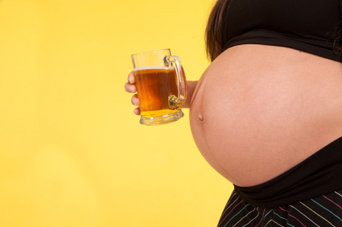Heavy exposure to alcohol during prenatal development frequently leads to fetal alcohol syndrome (FAS), with characteristic symptoms of growth deficiencies, cognitive dysfunction and facial abnormalities. Reductions in overall brain volume – and in specific brain regions – are a common finding among children exposed to high levels of alcohol during development. But the effects of low-to-moderate exposure are less clear.

Kristen Eckstrand and Malcolm Avison, Ph.D., professor of Radiology and Radiological Sciences, with colleagues at Wayne State University, have examined the effects of low-to-moderate prenatal alcohol exposure on the brains of young adults. The study population was prospectively identified and followed from birth to 19 years of age. They report, in the November issue of Alcoholism: Clinical and Experimental Research, that young adults exposed to even relatively small amounts of alcohol in the womb showed dose-dependent gray matter reductions in several brain areas implicated in behavioral consequences of prenatal alcohol exposure.
The findings suggest that even low levels of prenatal alcohol exposure impacts brain development and the effects persist into adulthood.
The research was supported by grants from the National Institute on Alcohol Abuse and Alcoholism (AA006966, AA009524), National Institute on Drug Abuse (DA021034), and the National Center for Research Resources/National Center for Advancing Translational Sciences (RR024975) of the National Institutes of Health, and the Joseph R. Young, Sr., Fund.















